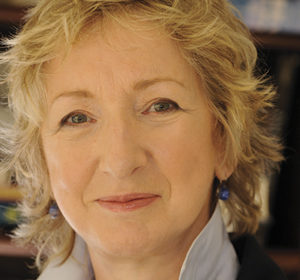I can still see the collection box with its picture of a black child and an Irish missionary priest. I can’t remember if we were saving their souls from damnation or their bodies from starvation. One sister says she remembers it as starvation, another says it was definitely souls.
Growing up in Ireland, Africa was in our consciousness from a very early age. We were encouraged to give our precious few pennies to the “black babies.” The Irish Famine was very close to us too. It wasn’t much talked about – it was more like a haunting.
I remember the teacher telling us, “they had to eat grass” and in my child’s eye picturing a young girl with green drool around her mouth. As a kid I used to ask myself, how could they have let us starve? As an adult reading about Africa, a certain sense of helplessness ensues. What can one do? The entire continent seems rife with AIDS and on the edge of starvation.
Recently, I took a trip to Southern Sudan with Concern, the worldwide relief organization that was founded in Ireland in 1968, in response to the famine in Biafra.
After 21 years of civil war, resulting crop destruction, and poor harvests, the population of Southern Sudan is barely sustaining itself. I saw malnourished children and worn-faced mothers, with no running water and no electricity. Such food supplements that are given to the children by Concern often get shared with family members. What little is to be had is also shared with other relatives. Now that a tentative peace agreement is in place in Sudan, thousands who were uprooted by war are returning, and putting a further strain on the food supply.
I met one woman returnee who had walked for ten days to get home. She was accompanied by her granddaughter. They have nothing but the clothes they are wearing. Their home is a mud hut – all the homes are mud huts.
Women have a particularly hard time here – they do the majority of the work, yet they have no rights over property, or more important, their bodies.
What will become of the granddaughter? I wonder. Will she end up as the fourth wife of some sub chief? For sure she is facing a hard life, with few if any choices, and no access to healthcare or education.
There is little about this part of Sudan that gives one hope. And yet…
We took a trip upriver – a muddy, swollen stretch of water that completely disappears in the dry season – and after walking for some time in the bush flanked by sorry looking fields of sorghum, we came upon an extraordinary sight: two beautifully laid out gardens of onion beds and tomato plants, crudely enclosed by a hand-hewn fence made of tree branches.
Concern had provided seeds and garden tools to a cooperative of ten women who made one garden. They then shared their tools and knowledge with a group of women returnees and helped them to plant a garden.
Seeing these simple, but life-sustaining gardens, I realized that the problem is never too big that you can’t make a start. “It’s never hopeless And one person can make a difference,” says Siobhan Walsh, the U.S. director of Concern Worldwide.
Fresh from my experience in Sudan I went to a lecture sponsored by Glucksman Ireland House at New York University. Musician and political activist, U2’s Bono, introduced Columbia University’s Professor Jeffrey Sachs, the author of The End of Poverty: Economic Possibilities for Our Time.
Sachs, who talked about the huge problems faced by Africa, said, “It’s part of the DNA of the Irish to help.” Eileen Naughton, President of Time magazine, whom I interview in this issue, concurs. “When you think about this little country [Ireland], it has put forth some interesting people on this earth,” she says.
As we go to press Naughton is giving the welcoming address at the TIME Summit on Global Health. “It’s not about the despair of the condition but the hopefulness and places in the world where individuals are making a difference,” she says.
We are proud of the many on our Business 100 are also involved in making a difference.
Mortas Cine. ♦


Leave a Reply